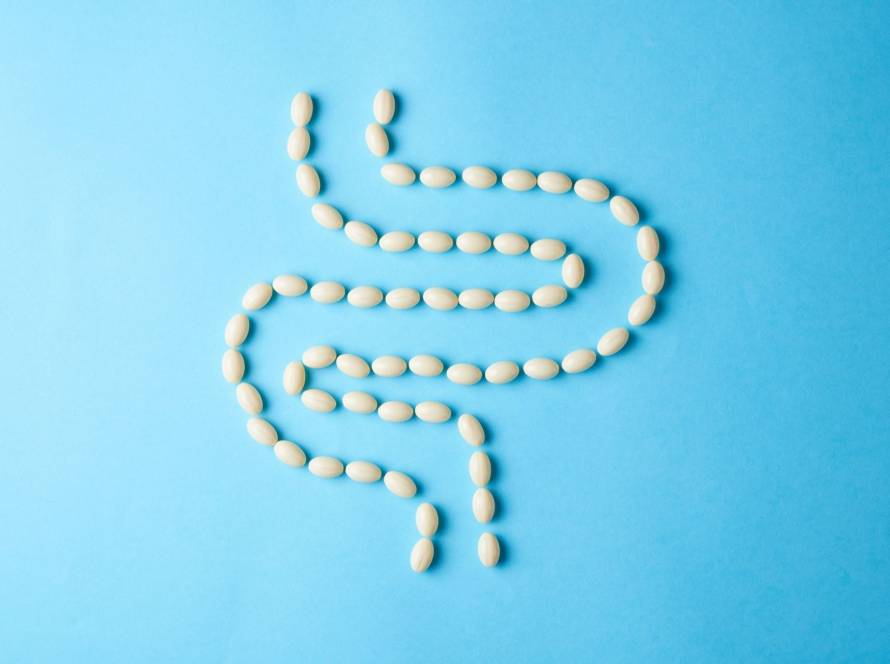NAD supplement side effects have become a crucial topic as the production of these compounds has grown by 30% over the last several years. These supplements are now accessible to more people who use them for their potential longevity benefits. Understanding their safety profile has never been more essential.
This piece will get into the scientific evidence behind NAD supplement side effects to help us make better decisions about using them for our longevity goals.
What are NAD supplements
NAD supplements show great promise in curbing age related decline. NAD (Nicotinamide adenine dinucleotide) exists as a coenzyme in every living cell and plays a crucial role in many metabolic processes linked to cellular bioenergetics.
Types of NAD supplements
You can find several forms of NAD supplements today:
- NAD+ (oxidized form): the positively charged form that has lost an electron;
- NADH (reduced form): the neutral form containing an additional hydrogen electron;
- Precursor compounds:
- Nicotinamide Riboside (NR);
- Nicotinamide Mononucleotide (NMN);
- Nicotinamide (NAM);
- Nicotinic acid (Niacin).
How NAD works in the body
NAD acts as a key metabolic messenger that connects cellular energy status with downstream signaling for bioenergetic stress adaptation. It also serves as an exclusive co-substrate for two important enzyme families:
- Sirtuins (SIRTs): These proteins regulate cellular repair;
- Poly(ADP-ribose) polymerases (PARPs): Essential for longevity maintenance.
NAD takes part in redox reactions that lead to ATP formation. Research shows that NAD levels drop by 10-80% as we age.
Key benefits for longevity
Scientists have discovered many benefits of keeping NAD at optimal levels:
- Cardiovascular improvements: clinical trials show that restoring NAD levels reduces systolic blood pressure and aortic stiffness;
- Enhanced cellular function: NAD supplements help with:
- Improved mitochondrial function;
- Increased ATP production;
- Better muscle stem cell quality.
- Metabolic enhancement: studies reveal that proper NAD levels support:
- Insulin sensitivity;
- Glucose tolerance;
- Oxidative metabolism.
NAD plays a vital role in DNA repair mechanisms, which makes it especially important for skin health and protection against UV radiation damage. Its involvement in preventing various signs of cellular aging shows its protective and regenerative abilities.
Recent clinical studies found that older males showed fewer circulating inflammatory cytokines after just three weeks of NAD restoration. Heart failure patients also saw better mitochondrial function and reduced pro-inflammatory factors after taking NAD supplements.
Common side effects of NAD plus
NAD supplementation can cause various side effects that range from mild discomfort to serious health issues. You have to understand these reactions to make better decisions about your supplement choices.
Mild reactions
Most people who take NAD supplements at recommended doses experience minimal side effects. The common mild reactions include:
- Digestive discomfort: nausea, bloating and stomach discomfort are the most common mild side effects;
- Sensory reactions: feel flushing, itching and temporary warmth during supplementation;
- Sleep and energy changes: many studies show temporary fatigue and sleep changes.
Our body will usually adjust to the supplement and these symptoms go away.
Moderate side effects
Higher doses and certain ways of taking NAD can lead to more noticeable side effects:
- Headache Patterns: studies show that frontal dull headaches show up with doses between 1-18 grams. These headaches stop once you discontinue the supplement;
- Muscle related Issues: some users get muscle pain and nervous system reactions. Current research shows these symptoms don’t pose serious health risks;
- Cardiovascular Effects: NAD supplements might lower your blood pressure. This needs careful monitoring if you take blood pressure medications.
Severe adverse events
Serious side effects are rare but need attention:
- Liver considerations: high NAD doses can harm the liver, as shown in animal studies. Your liver has the highest NNMT (nicotinamide N-methyltransferase) levels and reacts strongly to high NAD amounts;
- Metabolic impact: NAD doses above 20 mM can kill cells. Animal studies found a lethal dose (LD50) of 2.5 g/kg for oral use, which means about 150g in humans;
- Long term concerns: High doses taken for long periods might change your DNA methylation;
- Safety thresholds: Daily intake between 500-1000 mg stays safe over time. The European Nicotinamide Diabetes Intervention Trial showed children who took 25-50 mg/kg daily for five years had no major side effects.
NAD supplements stay safe when taken at recommended doses. Side effects usually depend on how much you take and your body’s sensitivity. The best approach starts with low doses and increases them under a doctors watch.
Who should avoid NAD supplements
NAD supplements safety is a vital part of deciding if they match your health goals. Research has shown several groups should be careful or stay away from these supplements.
Medical conditions
You should think over NAD supplementation carefully if you have certain health conditions:
- Liver and kidney issues: people with liver or kidney problems should avoid NAD+ supplements because these organs process NAD+. High level NAM administration can lead to hepatotoxicity;
- Cardiovascular concerns: studies show that cardiovascular system becomes vulnerable when NAD+ metabolism gets disrupted, especially with the hearts high energy needs.
Age related considerations
Your age matters when deciding about NAD supplements:
- Young adults: People under 32 who stay healthy and fit usually don’t just need NAD+ supplements. Their bodies make enough NAD+ naturally;
- Older adults: Seniors often benefit from NAD supplements as their levels drop with age. They should talk to their doctors first, particularly with:
- Inflammatory disorders;
- Cancer concerns;
- Multiple medication regimens.
These guidelines will give a safer supplement experience. You should talk to your healthcare provider before starting NAD supplements, especially if you take multiple medications or fall into any of these groups.
How to minimize side effects of NAD+ supplements
While NAD+ supplements like NMN (nicotinamide mononucleotide) and NR (nicotinamide riboside) offer promising benefits for energy production, cellular repair and longevity, some users may experience mild side effects. Here’s how to reduce potential discomfort and enhance the benefits of these supplements.
Start with a low dose and increase gradually
Jumping straight into a high dose of NAD+ supplements may overwhelm the body, leading to nausea, dizziness or flushing. To minimize this risk:
- Begin with the lowest recommended dose (100–250 mg of NMN or NR);
- Monitor how your body reacts over a few weeks before gradually increasing the dose;
- Some people find they tolerate NAD+ boosters better when taken every other day at first before moving to daily supplementation.
Take with food to reduce stomach discomfort
Some individuals experience nausea, bloating or mild stomach upset when taking NAD+ supplements on an empty stomach. To prevent this:
- Take NAD+ supplements with a meal, preferably one containing healthy fats (such as avocado, nuts or olive oil) to aid absorption;
- Avoid taking it with coffee or highly acidic foods, which may irritate digestion;
- If you still experience discomfort, try a smaller divided dose (for example: half in the morning and half in the afternoon).
Monitor your response and consult a doctor if needed
Since NAD+ plays a role in energy metabolism, some users may experience fatigue, dizziness or fluctuations in blood sugar. If you notice any of the following:
- Persistent headaches or fatigue, try lowering the dose or adjusting the timing of intake;
- Low blood pressure symptoms (lightheadedness, weakness) may indicate NAD+ is lowering your blood pressure too much;
- If you have underlying health conditions (like diabetes, cardiovascular disease or cancer history), consult a doctor before starting NAD+ supplements.
Consider alternative ways to boost NAD+ naturally
While supplements can be beneficial, there are natural ways to elevate NAD+ levels without potential side effects:
- Intermittent fasting: activates longevity pathways and increases NAD+ naturally;
- Exercise: regular physical activity, especially HIIT and resistance training, stimulates NAD+ production;
- A healthy diet: foods rich in niacin (vitamin B3), polyphenols and amino acids support NAD+ levels. These include mushrooms, fish, avocados and green vegetables;
- Heat and cold therapy: sauna use and cold exposure may enhance NAD+ pathways and mitochondrial function.
NAD supplements deserve both excitement and careful attention. It can be a powerful tool for longevity, but taking the right precautions ensures maximum benefits with minimal side effects. Always listen to your body and consult a healthcare professional if any concerns arise.


